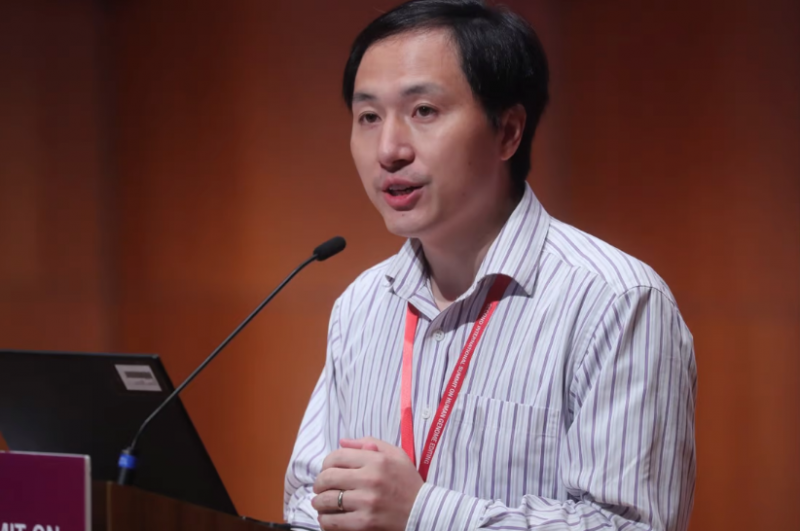
Beijing: He Jiankui, a controversial Chinese scientist who previously produced gene-edited children, has announced his relocation to Beijing and is seeking government funding for a DNA synthesizer project.
"I have come to Beijing for development," he said last month on China's Twitter-like microblogging platform Weibo.
He previously said that he was getting ready to submit an application to the government for funding to conduct research for a new DNA synthesizer project.
"[I]will continue the scientific research and serve the nation," he posted on Weibo.
Asked by the South China Morning Post about his plans on Wednesday, he declined, saying it was not convenient for him to speak.
According to the research proposal posted by him on Weibo, the project aims to raise 50 million yuan (US$7.2 million) to develop China's first third-generation DNA synthesis platform in three years.
Whereas DNA synthesis is like "writing" data from a disc, DNA sequencing is like "reading" data from one, according to him.
According to the inventor, the DNA synthesizer will be used primarily for information storage. The entire collection of books from the National Library can be stored on a single piece of synthetic DNA the size of a fingernail.
He continued by stating that DNA synthesizers combined important technologies such as DNA synthesis, the production of chips and other electronic components, and advanced mechanical engineering.
We should take advantage of new technological and economic development opportunities in this area. In the research proposal he wrote.
He shocked the world in 2018 when he revealed that he had created two genetically altered twin girls, "Lulu" and "Nana". The following year, "Amy," a third child was born. The well-being and whereabouts of the three girls remain a mystery.
They mutated the CCR5 gene of three embryos to make them HIV resistant, using the gene-editing tool CRISPR-Cas9.
Although still in its infancy, scientists believe that genome-editing techniques have the potential to one day cure a variety of genetic diseases. These devices have recently been used in research on embryos.
He was released from prison earlier this year after serving three years in prison. In 2019 he was arrested, sentenced to three years in prison, and fined 3 million yuan (US$432,000) for engaging in "illicit medical practices".
Prior to that, he had lost his job as an associate professor at the Southern University of Science and Technology in Shenzhen.
Two eminent Chinese bioethicists earlier this year urged the Chinese government to do more to protect the three gene-edited girls.
The bioethicist suggested in a proposal sent to the National Health Commission in February that a special "research and care organization" be set up and funds allocated for child care.
UK took some serious actions against TikTok because of App'ss Chinese links